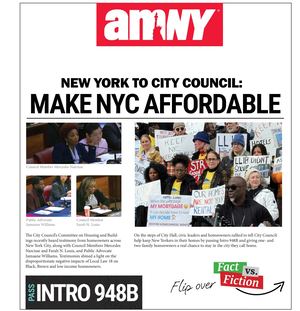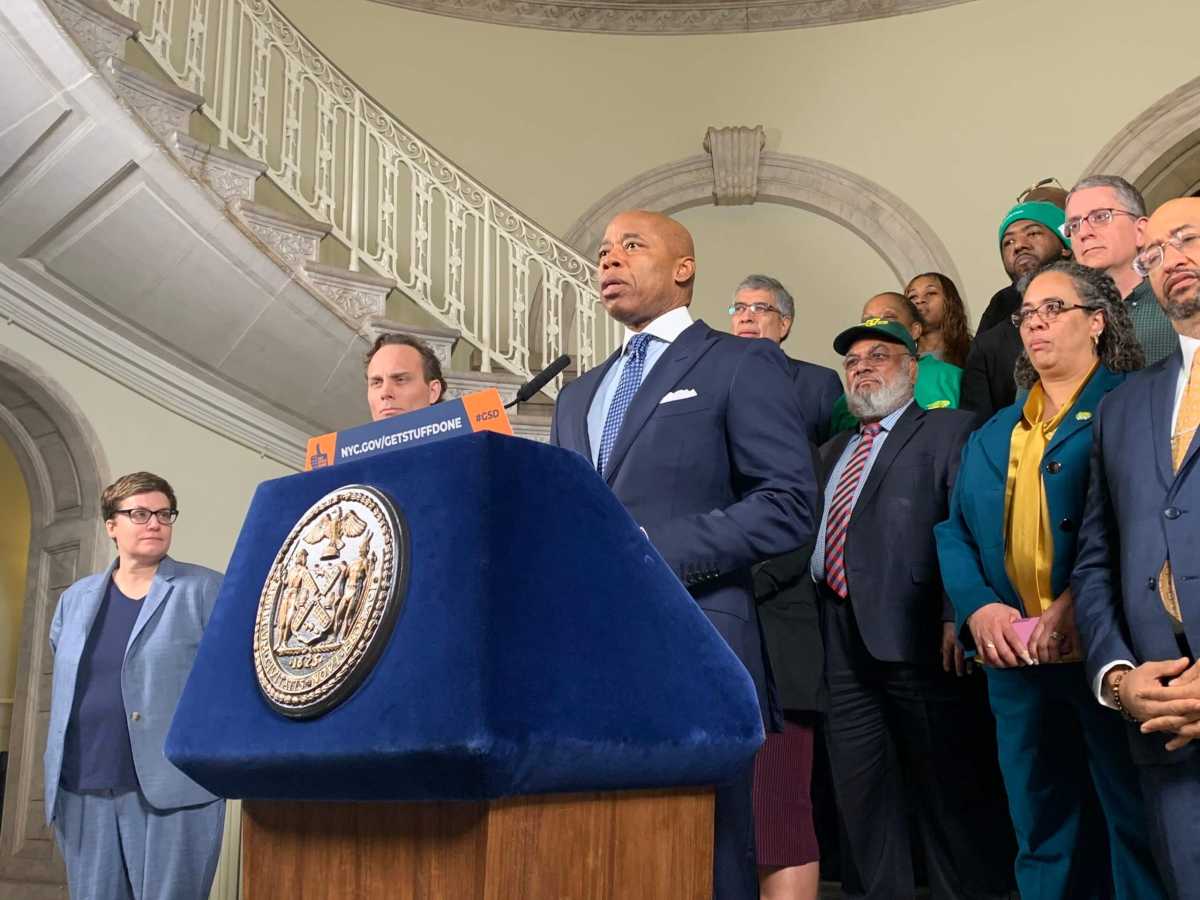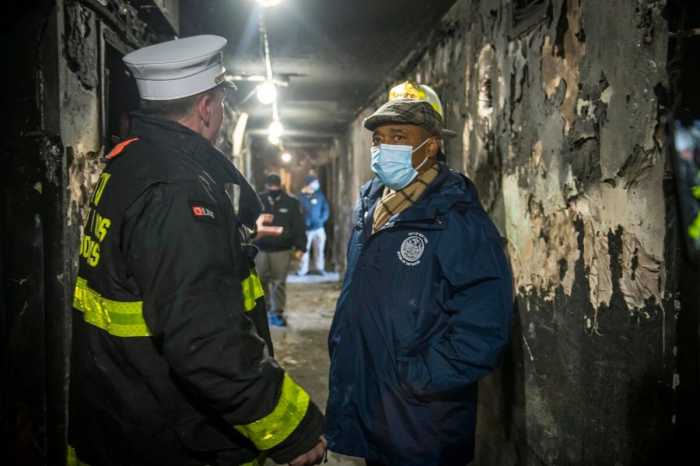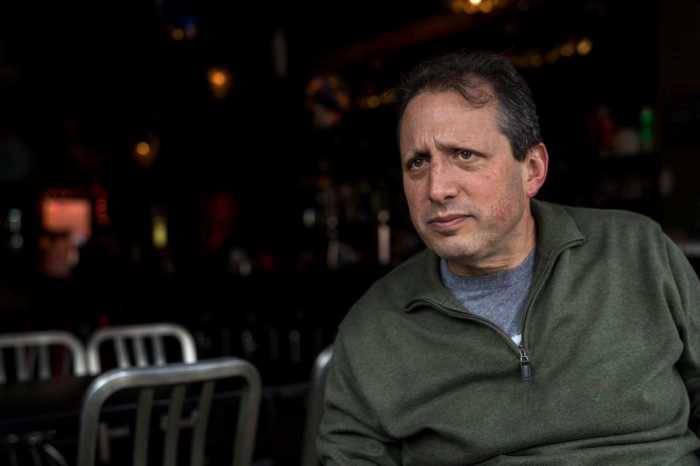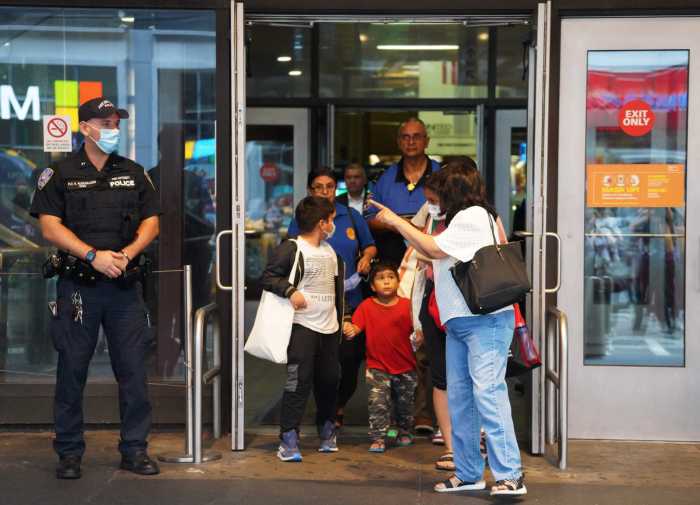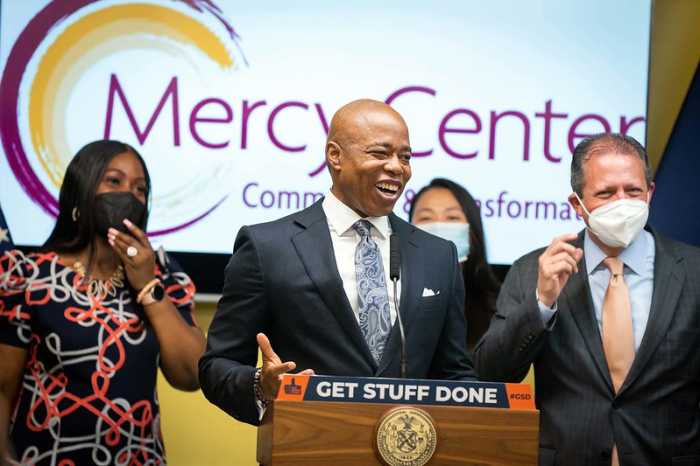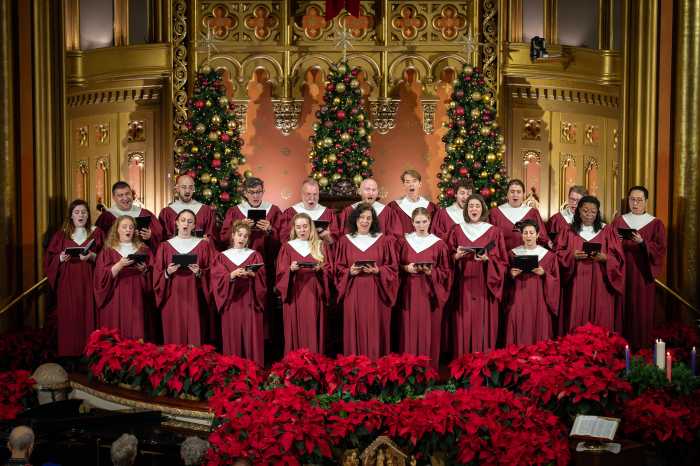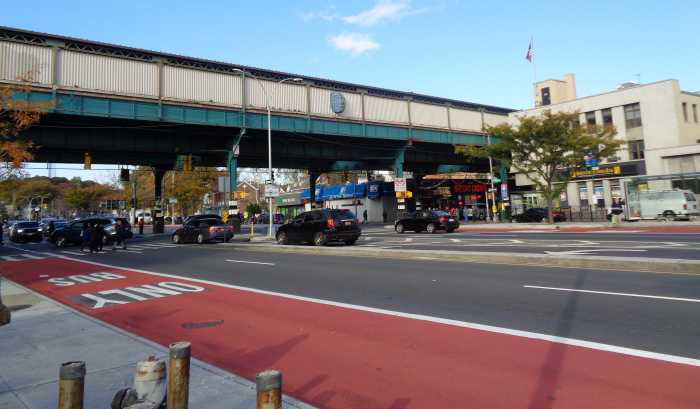Mayor Eric Adams reached a tentative 5-year $4.4 billion contract deal with District Council 37 (DC37) on Friday, which will cover close to 90,000 city employees.
The tentative deal, which takes effect retroactively starting May 2021, will last until Nov. 6, 2026, and includes raises of 3% per year for the first four years and 3.25% for the final year. The agreement also includes establishing a committee to discuss how to incorporate remote work into union members’ schedules.
The deal is the first labor agreement reached during Adams’ tenure.
“This tentative agreement covers … 911 operators who work around the clock to ensure our safety, social service workers who protect our city’s children, the people helping your kids cross the street, who feed our children in schools as food service workers and the dedicated city workers who staff our libraries and parks,” the mayor said during a news conference at City Hall Friday morning.
The contract includes a “Flexible Work Committee” — a group that will be equally made up of union and city representatives — that will figure out how to incorporate options like remote work, flexible work schedules, shorter work weeks and enhanced “transit benefits” into union members’ daily lives.
Plus, the agreement contains a child care trust fund for DC37 members — that the city will fund to the tune of $3 million annually; a $70 million pot to make salary adjustments and help recruit for “hard-to-fill” roles; and a one-time bonus of $3,000 for all union members.
DC37 Executive Director Henry Garrido said this was a particularly difficult round of contract negotiations coming out of the pandemic because they had to navigate challenges like rising healthcare costs and accommodating those who want to work remotely.
“This is by far the most challenging and the most difficult negotiations we have had,” Garrido said. “Because of the problems with health care … because of the difficulties of the pandemic, because of the hard to recruit titles, because of challenges like flexible schedules.”
The flexible work committee will be tasked with establishing a remote work pilot program by the beginning of June. While the mayor used to insist that workers must return to the office, in order to help revive the city’s economy, he said he’s no longer letting his “personal beliefs” about remote work dictate his stance on it.
“My personal beliefs can’t get in the way of running a city at this level of complexity,” Adams said.
But, the mayor said, it’s important that there be deliberate conversations around how to integrate virtual work, instead of just shifting everyone to a remote schedule.
“As we make this shift into the post-pandemic reality, we must do it in a thoughtful way, in partnership with the union,” Adams said. “A knee-jerk reaction of just stating that everything’s remote work overnight will disrupt our city and disrupt our economy.”
City Comptroller Brad Lander, in a statement, applauded the mayor’s inclusion of remote work in the DC37 contract, since it’s been integrated successfully into his own office.
“The majority of employees in the Comptroller’s Office have been successfully working on a hybrid schedule (three days a week in-person) for the past year, and we recently finalized new hybrid work policies in consultation with staff and union representatives,” Lander said.
The annual wage increases of 3% and 3.25% included in the agreement surpass the administration’s estimate of just 1.25%-a-year raises included in the mayor’s preliminary budget released last month.
Renee Campion, head of the city’s Office of Labor Relations, said the DC37 raises will set the standard for the administration’s bargaining with its other municipal unions.
“We consider this the economic framework under which we will be bargaining,” Campion said. “I’m in bargaining right now with many unions, they’re in many different phases … Impossible to say when the next agreement will be, we’ll continue working on that.”
However, Jacques Jiha, Adams’ budget director, said the city has been saving up for these labor negotiations and will take future measures to find additional savings. The administration estimates the deal will cost taxpayers a total of $2.9 billion by Fiscal Year 2027.
“We [knew] that deal was coming and we’ve been negotiating with the labor unions for the past year,” Jiha said. “We’re going to be looking for savings to our city agencies like we always do and we have a plan to address this.”
